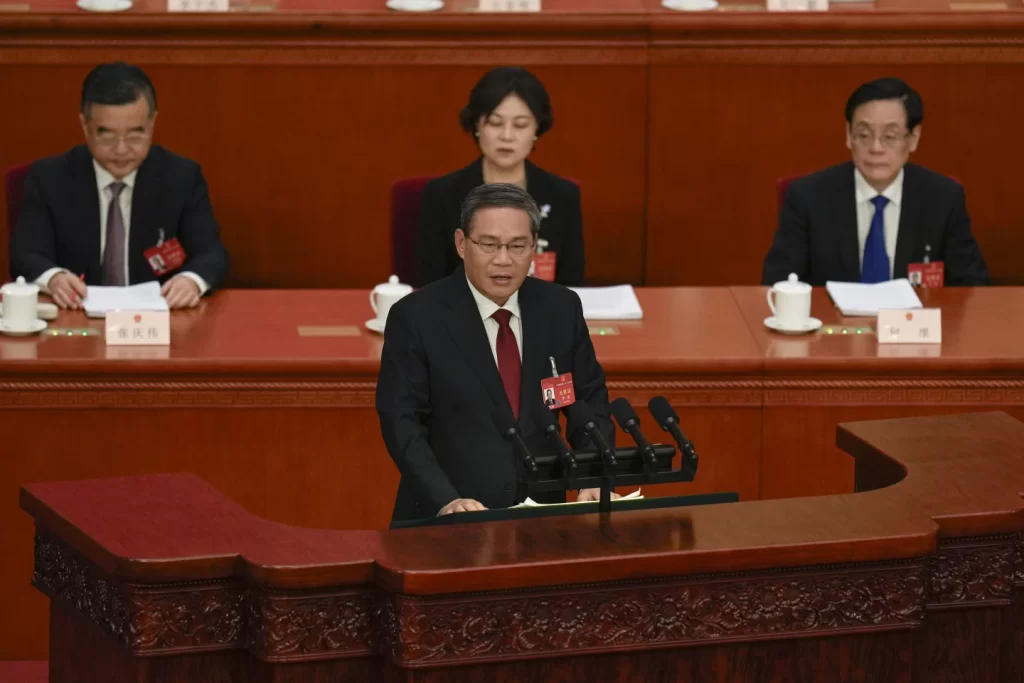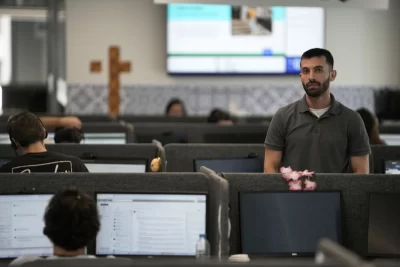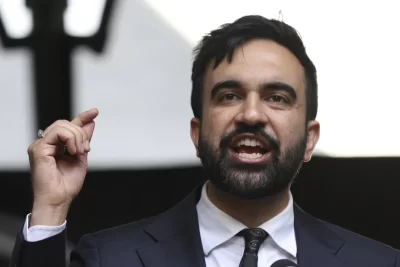
BEIJING — China’s official growth target for this year is around 5%, Premier Li Qiang said Tuesday in an annual report on the government’s plans and performance that prioritized both security and the economy.
Li said the government would continue with a “pro-active fiscal policy and prudent monetary policy,” suggesting no major change in the leadership’s approach to pursuing what it calls “high quality” development.
The ruling Communist Party has been emphasizing the need to raise consumer spending to help drive the economy. But the consumer-led recovery it was counting on after anti-pandemic controls ended in late 2022 faltered midway through last year.
China’s real estate market is in crisis after many developers defaulted on their debts following a crackdown on excess borrowing. Falling housing prices and worries over jobs have left many families either reluctant or unable to spend more.
Li said the government plans to issue 1 trillion yuan (about $139 billion) in “ultralong special treasury bonds” in 2024 and over each of the coming several years — a long hoped-for extra promise of government spending to help support flagging growth.
The government also plans to provide support for local governments facing “economic difficulty,” he said, suggesting that Beijing will limit damage from debts of cash strapped cities and regions that have been rising sharply.
Li also said China plans to spend 1.67 trillion yuan ($231 billion) on defense this year — a rise of 7.2% that matches the pace of increase in 2023.
Last year, China’s economy grew at a 5.2% pace, but that was after a very slow 3% annual growth rate in 2022, when the country was enduring the worst disruptions from the COVID-19 pandemic, when many millions of people spent weeks in quarantine and businesses were ordered to close.
Li said the leadership would strive to improve its handling of policies and local authorities should follow suit, avoiding measures that contradict or hinder progress.
“Making progress is our goal and it is also what motivates us,” he said, adding that stability was paramount, “the basis for everything we do.”
“We should communicate policies to the public in a well-targeted way to create a stable, transparent and predictable policy environment,” Li said in a speech on government plans before the ceremonial National People’s Congress in the Great Hall of the People.
He said policies should be more targeted and effective and reflect “the expectations of enterprises and the people when deciding on work and policy priorities.”
Li was addressing the nearly 3,000 delegates of the National People’s Congress and about 2,000 members of a parallel advisory body in Beijing’s majestic Great Hall of the People, adjacent to Tiananmen Square.
China’s most powerful leader in decades, Xi Jinping, heads the party and has installed loyalists like Li in top posts to strengthen the party’s control over the economy and society. Xi, 70, is in his third five-year term as party general secretary and may hold that post for life.
The meetings of the national congress run for about a week and are China’s biggest political events of the year. The congress only endorses policies already set by top leaders, but it provides a platform to showcase the party’s accomplishments and to build support for its aims.
Li said the government would defuse risks in the real estate market and manage debts that have built up in the property market and also in local governments whose finances have been strained by high spending on anti-virus measures and lower tax revenues due to the downturn in land right sales.
The government plans a “new development model” for the housing market, he said, including building government-subsidized housing. That appeared to confirm reports that authorities plan to use public funds to buy up some of China’s legions of unoccupied apartments and turn them into affordable housing.
Economists have said such an approach, although potentially costly, would relieve pressure on financially troubled property developers, help families afford housing that is still financially beyond their reach and help encourage more consumer spending.







